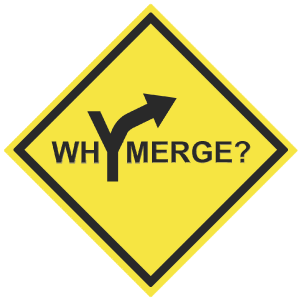Is a Sprint/T-Mobile Merger in the Cards?
 The telecom press is hopping with speculation that Sprint is preparing to make a move on T-Mobile, thanks to an article in the Wall St. Journal:
The telecom press is hopping with speculation that Sprint is preparing to make a move on T-Mobile, thanks to an article in the Wall St. Journal:
Sprint is studying regulatory concerns and could launch a bid in the first half of next year, the people said. A deal could be worth more than $20 billion, depending on the size of any stake in T-Mobile that Sprint tries to buy.
The reaction was swift and immediate from the tech press, with articles in Bloomberg, GigaOm, The Verge, The Hill, USA Today and the Washington Post. Most stories didn’t offer much insight, simply highlighting the uncertainty in winning approval for a large telecom merger that would create a stronger third national network at the expense of reducing the total number of national carriers from four to three. Is it better for competition to have three strong carriers or to continue the current market dynamic that features two major carriers and two minor ones?
Public Interest champion Public Knowledge was quick to pan the deal:
A stronger third-place competitor, better able to keep AT&T and Verizon in check, might sound appealing. But it’s not worth the price of losing the number four competitor. A market with only three major carriers would be much more prone to “coordinated effects” where “competing” companies act as an effective cartel, even if they don’t meet secretly to split up the market. All they need to do is match each others’ pricing moves and pay attention to press statements and you have the same result as an illegal cartel without any lawbreaking. This is just as bad for consumers.
This statement is from John Bergmayer, so it’s not as authoritative as one from Harold Feld would be, so PK’s position may change.
It’s hard to argue that consumers would be disadvantaged by the replacement of two minor players with one major one, frankly. So I’m going to predict that the FCC will approve the merger, if it comes to them, with conditions that require Sprint Mobile to shed some of its massive inventory of spectrum. Taking all frequencies into account, the combined firm would hold more than AT&T and Verizon combined, a super-concentration of spectrum the likes of which the United States has never seen. Sprint will argue that its spectrum is not “beachfront” enough to constitute an unhealthy concentration, and this argument will surely get some play in the public interest sector.
One interesting implication concerns the Spectrum Incentive Auction now set to take place sometime in 2015: Sprint has sought to exclude AT&T and Verizon from the auction, but how can it be permissible to allow the nation’s largest holder of spectrum to acquire even more if it’s not acceptable to allow the firms with the most users to expand their holdings?
A combined Sprint/T-Mobile would only serve 55 million customers, less than either AT&T (75 million) or Verizon (over 100 million.) So the concentration of spectrum on a per user basis is hard to justify. The FCC’s practice is to deal with such unbalanced allocation by forcing the new firm to shed licenses, which would be good for Verizon and AT&T and for Dish as well. The chances are that Dish would become the nation’s fourth coast-to-coast carrier as soon as they accumulate enough licenses to make a go of it, so the loss of the fourth network should only be temporary if it happens at all.
There as also been talk about the difficulty of merging carriers who currently run incompatible technologies, since Sprint is a CDMA network while T-Mobile uses GSM. This hurdle is significant in the short term, but not much of a problem in the long term. Both networks are heading toward LTE, so there is a natural point of convergence in the future. Given how hard it is to combine billing, customer service, marketing, and sales, it’s probably not going to be as difficult for Sprint to absorb T-Mobile as it was for them to swallow Nextel. The advance of technology makes all things possible, if not easy.
The FCC doesn’t want to make anyone unhappy, especially in an election year, but the promise of a new national carrier from Dish and the ability of the agency to rejigger spectrum holdings makes this merger at least thinkable if not easily doable.



